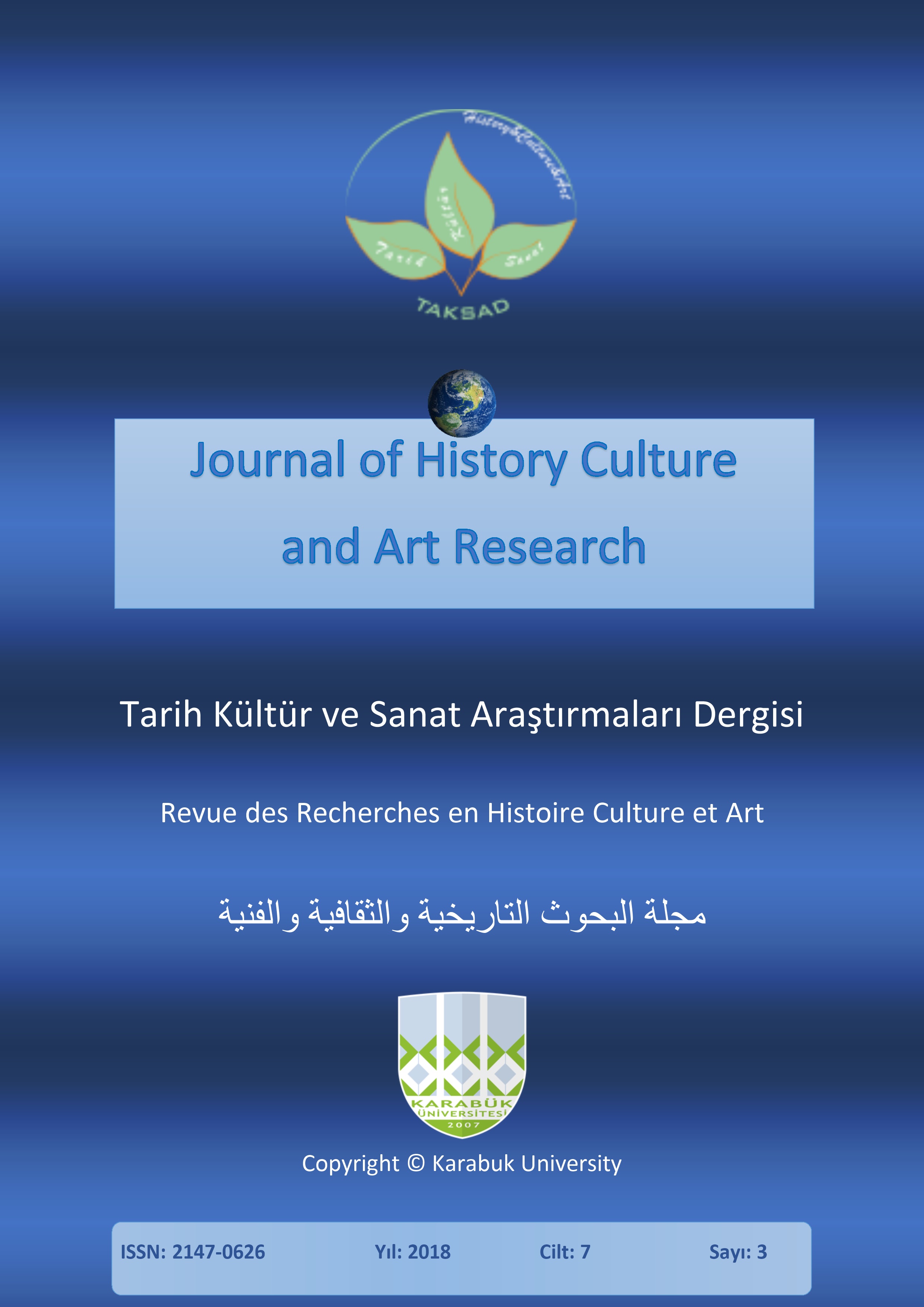Philosophical Views in Works of P. A. Oyunsky
DOI:
https://doi.org/10.7596/taksad.v7i3.1735Keywords:
Olonkho-toyuk (an improvised song), Heroic epic, Legend, Folk wisdom, Man, Fate, the truth, Terekh, Shaman, Philosophical hermeneutics.Abstract
The article analyzes philosophical problems that arise in the works of one of the classics of the Yakut literature P.A. Oyunsky. His works consider people’s perspective of the world, man and his fate, society, the truth, everlasting and implacable battle between the forces of Good and Evil and his views on these issues. As a result of the research, the author of the article concludes that according to P.A. Oyunsky, oral folk art is an inexhaustible source of folk wisdom. That is the reason his works are based on vivid images and representations of the Yakut heroic epic olonkho, legends and folk tales. Oyunsky considers problems of current, turbulent social events of the beginning of the 20th century and important worldview issues in the language of images making maximum use of figure of speech and oral folk art techniques of the Yakuts. The author of the article proceeds from the premise that the outstanding literary artists in a state of creative inspiration can find such holistic and deep artistic image, successful expression of what they have seen and perceived that the true and hidden meaning of which cannot always be fully understood. Therefore the author believes that the works of P.A. Oyunsky can be studied from the perspective of philosophical hermeneutics over and over again returning to his works and trying to gain a richer understanding of his works’ meaning. It has been noted that philosophy has always been closely related to the fiction in domestic and foreign philosophical literature. This tradition has not been interrupted during the history of philosophy. The author of the article considers that many of the classics of Yakut literature also raised important philosophical issues. Nevertheless, studies devoted to the consideration of philosophical views in the works of P.A. Oyunsky are absent.
References
Androsov, E. D. & Kuzmina, E. F. (2012). Memorable places of the Tatta land. Yakutsk: Bichik. (In Yakut language).
Concise philosophic dictionary (2010). Moscow: RG-PRESS.
Kulakovsky, A. E. (1979). Academic works. Yakutsk: Book publishing house.
Leontiev, V. N. (1927). “The Red Shaman” Oyunsky (in the Yakut language). Cholbon, No. 3-4, 40-63.
Oyunsky, P. A. (1958). Nyukuus the Madman (in the Yakut language). Works in seven volumes, T.2. Yakutsk, Book publishing house, 168-171.
Oyunsky, P. A. (1959). “The Red Shaman” (in the Yakut language). Works in seven volumes, T.3. Yakutsk, Book publishing house, 105-147.
Oyunsky, P. A. (1962). On the translation of “Kyhyl Oyun”. Works in seven volumes, T.7. Yakutsk, Book publishing house, with, 117-120.
Oyunsky, P. A. (1975). Nyurgun Bootur the Swift. Yakutsk: Book publishing house.
Oyunsky, P. A. (2002). Kudangsa the Great. Alexander the Great. Yakutsk: Bichik.
Orosin, K. G. (1947). Nyurgun Bootur the Swift. Yakutsk: State Publishing House of the YaSSR.
Protodyakonov, V. N. (2009). “Let the flame of the word fire our native word - creative”. Yakutsk: Bichik.
Downloads
Published
How to Cite
Issue
Section
License
All papers licensed under Creative Commons 4.0 CC-BY.- Share — copy and redistribute the material in any medium or format
- Adapt — remix, transform, and build upon the material for any purpose, even commercially.
Under the following terms:
Attribution — You must give appropriate credit, provide a link to the license, and indicate if changes were made. You may do so in any reasonable manner, but not in any way that suggests the licensor endorses you or your use.
- No additional restrictions — You may not apply legal terms or technological measures that legally restrict others from doing anything the license permits.







